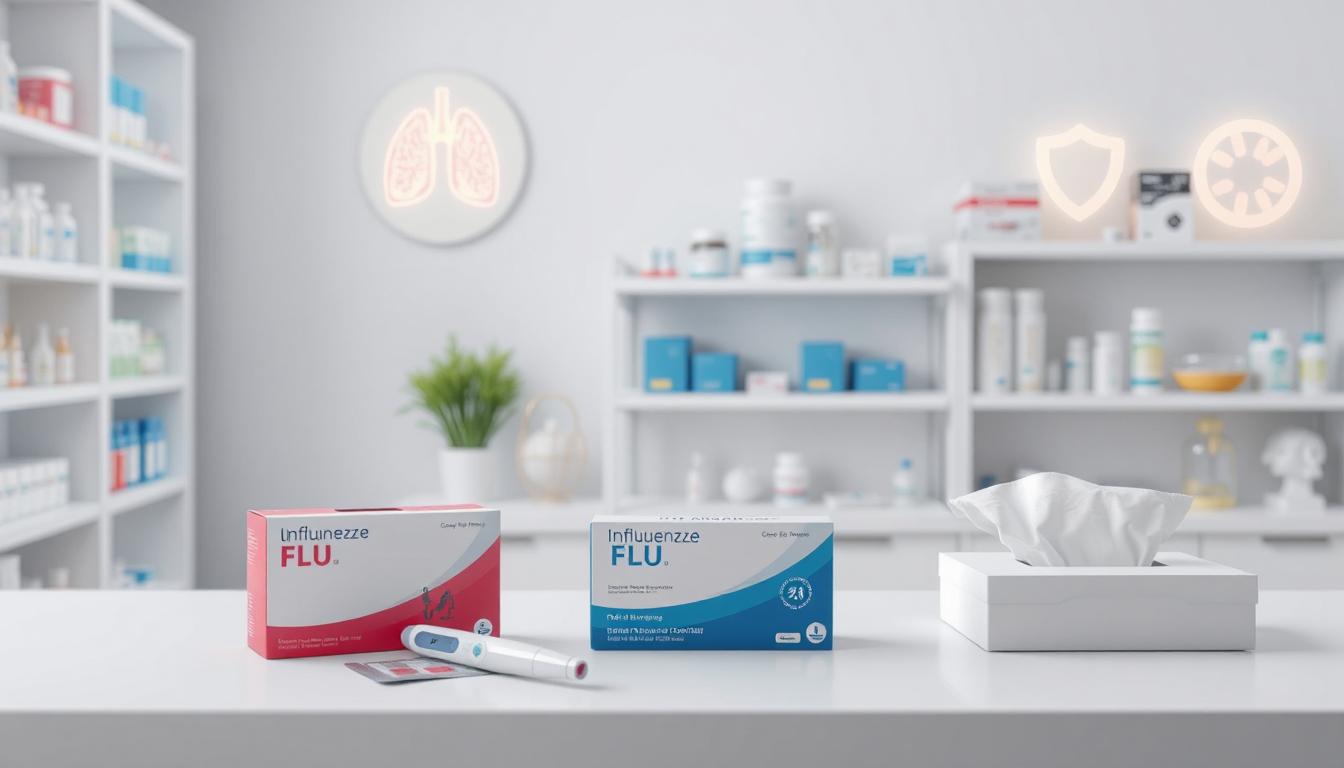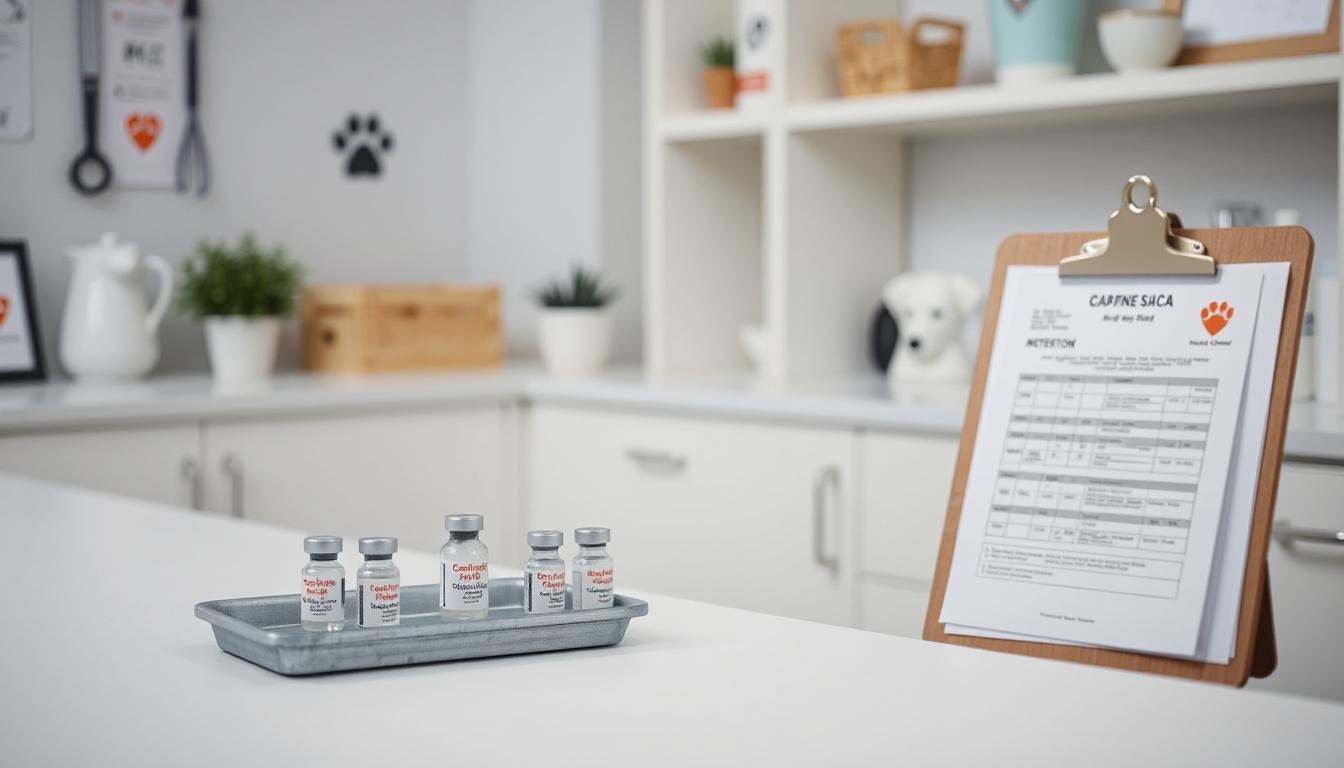Influenza (Flu): Symptoms & Fast Treatment
 Shaina
|
Shaina
|
 25 Jul 2025
25 Jul 2025
What is influenza and how it spreads?
Influenza, or just the flu, is a viral infection that hits your nose, throat, and lungs. It spreads fast—through coughs, sneezes, or even touching things like doorknobs or phones and then touching your face.
You don’t need to be right next to someone coughing to catch it. The virus can live on surfaces for hours. And someone can pass it on even before they feel sick.
Flu doesn't just affect people. There's also canine influenza vaccine for dogs, since animals can get flu too, especially if they’re around other dogs a lot.
Common symptoms of the flu
The flu usually hits out of nowhere. One minute you’re fine, the next you’ve got fever, chills, and your whole body aches.
Here’s what most people feel:
– Sore throat
– Dry cough
– Runny nose or stuffy head
– Muscle pain
– Fatigue (this one’s real)
– Sometimes nausea, especially in kids
– And in some cases, influenza rash, usually mild and fades quick
Influenza symptoms in kids can be more intense. They may also get vomiting or even febrile seizures, so always keep an eye if your kid seems off.
Types of influenza viruses (A, B, C, and D)
There’s not just one flu virus. There are four types.
Influenza A is the one behind most flu outbreaks. It’s the one that changes the most. Strains like influenza A H3 are part of that group.
Influenza B also hits humans, usually with milder outbreaks.
Influenza C causes more of a mild cold.
Influenza D? That one’s mostly in cows, not people.
In clinics, you might see terms like influenza A ICD 10 which is just a medical coding system. It helps track what type of flu was diagnosed.
How influenza is different from a cold or COVID-19
It’s easy to confuse the flu with a cold or even COVID. But they’re not the same.
Colds come on slowly. Mild fever or none at all. You’re still mostly functional.
Flu hits fast. One day you’re working, the next day you can’t get out of bed. High fever, body aches, dry cough—it just feels heavier.
COVID-19 symptoms can overlap, but it tends to last longer, and things like loss of taste or smell are more common.
If you’re unsure, there’s always the influenza test or an influenza test kit. That way, you’ll know for sure what you’re dealing with.
Who’s most at risk of flu complications
Some people bounce back from the flu in a few days. Others, not so much.
The ones more likely to get seriously sick are:
– Babies under 5
– People over 65
– Pregnant women
– People with asthma, diabetes, or heart disease
– Anyone with a weak immune system
For them, even a simple flu can turn into pneumonia or worse. That’s why influenza self-care isn’t enough if you're in a high-risk group. You may need meds fast.
How the flu is diagnosed by doctors
Usually, doctors ask about your symptoms and how long you’ve had them. If it sounds like flu, they might not even need a test.
But if they want to be sure, they’ll do a swab test—stick a soft swab in your nose or throat and run a rapid influenza test. Results can come back in under 30 minutes.
Some clinics also use PCR tests for more accurate results, especially during flu season.
Flu treatment and what helps
No real cure for the flu—but there are ways to feel better and shorten how long it sticks around.
Antivirals like oseltamivir (Tamiflu) help if taken early—within 48 hours of symptoms.
Rest is key. You’re not lazy—you’re healing.
Fluids, bro. More water, soup, tea—whatever keeps you hydrated.
Over-the-counter meds for fever, body aches, and congestion make it easier to deal.
Sanford Pharmacy has what you need—flu relief meds, antivirals, humidifiers, and support to help you through it.
How to prevent catching or spreading the flu
You can’t avoid people forever, but you can take steps.
– Get your flu shot every year
– Wash hands often
– Keep your distance when sick
– Cover coughs and sneezes
– Clean your phone, doorknobs, light switches—all that stuff
And yeah, if your dog’s around other dogs a lot, ask your vet about the canine influenza vaccine. Pet flu spreads fast too.
Why the flu vaccine is updated each year
The flu virus mutates. Like, constantly. That’s why the flu vaccine you got last year won’t fully protect you this year.
Scientists update the shot every season to match the strains expected to show up. It’s not perfect, but it lowers your chances of getting sick—or at least makes symptoms way milder.
Even if you get the flu after the shot, it usually won’t hit as hard.
What to do if you think you have the flu
First thing—stay home. Don’t try to push through work or school. You’ll feel worse and spread it.
Rest up. Take fever meds if needed. Drink fluids. Use a humidifier if you're super congested.
Call your doctor if:
– You’re high-risk
– You have trouble breathing
– Fever doesn’t go away
– You feel worse after 3–4 days instead of better
Sanford Pharmacy has everything to help you bounce back—from flu meds to influenza self-care kits. Don’t wait it out if it’s getting worse. Get the care you need and rest like your body needs you to.
Stay safe this season. And if you’re feeling that first shiver, don’t wait till you're stuck in bed. Catch it early. Treat it right. Feel better fast.
Categories

How Long Does It Take for Allegra to Work?
 Desirae
Desirae
.png)
How Long Does Amoxicillin Take to Work?
 Meaghan
Meaghan

How to Use Clindamycin Phosphate Gel?
 Curtis
Curtis

How Long Modafinil Stays in Your System?
 Karsyn
Karsyn

How Long Does Pepcid Take to Work?
 Earl
Earl












.webp)
.webp)
-(2).webp)

.webp)